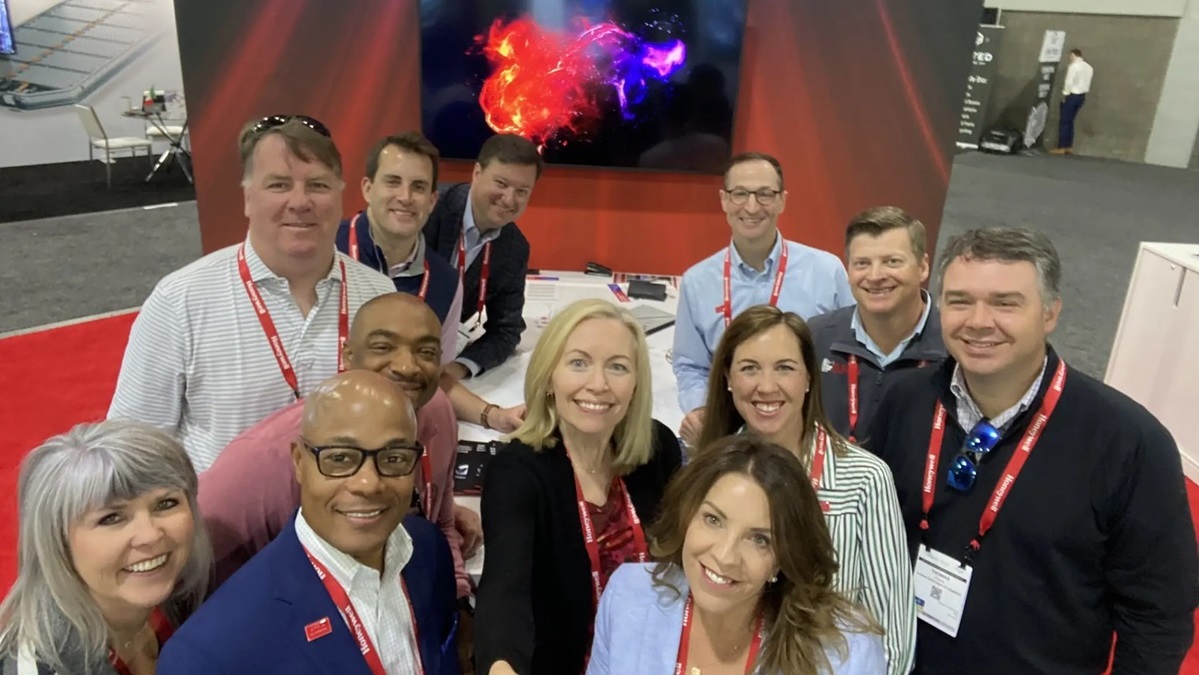Power Moves: DiversityInc CEO Carolynn Johnson tells why diversity and inclusion benefit businesses

More than ever, companies across the U.S. are engaging in diversity and inclusion efforts that increase cohesiveness and different viewpoints. DiversityInc CEO Carolynn Johnson said that diversity and inclusion programs increase employee morale and a feeling of belonging while benefiting companies' bottom line. (contributed)
Seeking top financial results, more companies are taking a close look at their internal cultures and finding that an inclusive workforce is the key to success. 
Those findings were delivered by a McKinsey & Co. study that reinforces the link between diversity and financial performance – and suggests how organizations can craft better inclusion strategies and gain a financial edge.
DiversityInc. CEO Carolynn Johnson has her finger on the pulse of American business. “We need to understand the current state of the labor market and why this is not just about diversity, but economic policy,” Johnson said.
Businesses must consider
- More than half of new entrants to the workforce are nonwhite, according to a September 2019 Washington Post article.
- Women are now more than 50% of the workforce.
- In 2019, women in the workplace had earned more bachelor’s degrees than men.
“Understanding how these facts will and should impact your recruiting and retention strategy will result in greater profitability, if executed correctly,” Johnson said.
For 20 years, DiversityInc has ranked companies based on company-submitted data. In 2019 DiversityInc recognized 114 organizations. With more than 200 questions, DiversityInc’s survey uncovers problems and gaps that prevent people from having an equal chance at success, with consideration to:
- Human capital diversity metrics: Measurement includes gender and racial/ethnicity breakdown of representation in overall workforce representation, overall management, senior management, new hires, promotions and 10% highest-paid populations.
- Leadership accountability: Commitment and accountability are evidenced by the CEO and senior leadership – from the top down to all levels of management – including the board of directors, the office of diversity and inclusion, diversity council practices and representation metrics.
- Talent programs: Formal programs incorporate mentoring, high potential and sponsorship programs, practices and participation metrics.
- Workplace practices: Top companies ensure equitable practices in the areas of talent acquisition, talent management, onboarding, diversity training, workforce development and engagement, LGBT, people with disabilities, military community and employee benefits policies and practices.
- Supplier diversity: Efforts include using companies owned by underrepresented groups – such as women, veterans and black-owned businesses – while ensuring accountability and best practices.
- Philanthropy: Endeavors include contributions to nonprofit organizations that help underrepresented groups, and/or boost employee volunteerism and matching programs and practices.
Sharing this data is the best way for companies to learn best practices and achieve similar results, Johnson said. Companies are more profitable when they are more diverse, as demonstrated each year by DiversityInc’s Hall of Fame and Top 50 Companies.
In 2019, Southern Company, the parent of Alabama Power, was No. 33 on DiversityInc’s Top 50 list, moving up 11 spots from number 44 in 2018. Consistently named among the Yellowhammer State’s most respected companies by the Birmingham Business Journal, Alabama Power is making concerted efforts to expand its diversity and inclusion program in 2020.

Johnson is CEO of DiversityInc, headquartered in New York. (contributed)
Johnson, who has met with Southern Company CEO Tom Fanning, said that he is an “unapologetic leader who is approachable, down-to-earth and committed to treating every employee fairly and allowing each person to realize their full potential.”
“Tom Fanning prioritizes equitable workforce representation and fairness in the same way he does any other business imperative that offers a competitive edge,” said Johnson, who has served on the national board of directors at INROADS for three years. “He models behavior he expects from his direct reports and other leaders by chairing the executive diversity council and setting the agenda for the meetings. He also reinforces the importance of accountability by tying executive compensation to council goals. These are a few of the behaviors that lead to superior performance and builds a culture of unquestionable trust.”
“Of the many programs the company offers that support the development of each employee, one that stands out is the enhanced health and wellness program,” said Johnson, who earned an MBA from Rutgers University Business School and a Certificate of Management in Organizational Leadership from the Tuck Business School at Dartmouth. “It includes health education and customized wellness and health management programs. There aren’t many organizations that invest in these types of workforce benefits. These are some of the reasons Southern Company has been a mainstay on the DiversityInc’s Top 50 list.”
Johnson said that a company’s leaders define the culture.
“Leaders must be really informed about what’s going on in their workplace,” she said. “You must be well-read and aware of the challenges people from underrepresented groups face on a daily basis. If you don’t know, that can’t be an answer. Read books that can better prepare you to lead differently.”
Johnson suggests these books to help any leader:
- “How to be an Antiracist,” by Ibram X Kendi.
- “Backlash,” by George Yancey.
- “Full Dissidence: Notes From an Uneven Playing Field,” by Howard Bryant.
‘Feeling of belonging’ reaps rewards for employees, businesses
Building a cohesive workforce not only ensures that a business sails along smoothly – it also means companies attract and keep their best employees, ensuring future success. Creating more diverse teams and leadership circles back to understanding where a company is at as an organization.
Johnson said that she believes ensuring the diversity of a company leadership team is critical to success, which allows different viewpoints to be heard. 
More and more, Fortune 500 companies are recognizing the integral role of diverse employees to business success. Diversity and cultural inclusion efforts and programs help bring diverse employees into focus, often playing a part in creating and filling jobs.
“The first step toward creating a more diverse employee base is having an intentional focus on measuring and reviewing your existing workforce and the all levels of management,” Johnson said. “You need to make sure you are looking at race/ethnicity within gender to really understand the depth of the problem or how well your strategy is working. The foundation of any effective program or strategy is data not opinions or feeling, data.
“Secondly, companies must be truthful about what is happening,” she said. “Leadership must be accountable and pay attention to all the data, not just what makes them feel or look good.”
The “glass ceiling” is real among female executives. Though women are earning more in today’s work world and are achieving the highest education levels, they remain underrepresented in CEO and leadership roles. DiversityInc’s Top 50 and Hall of Fame rankings show companies where women compose 45% of total management and individuals who identify as nonwhite make up 41%. The national average of women in management is 38%.
As companies move from being accountable for diversity and culture, they often expand to issues such as employee wellness, education and growth.
Johnson said she recognizes that she and DiversityInc have an important role to play in the evolution of company cultures.
“I’d want people to realize and my children to remember me with grace, understanding I did everything I could to help others,” Johnson said. “Understanding what others are dealing with and being a bridge to connect those who can help and want to be part of the solution and those who need help – that’s what I want as my legacy.”
Power Moves, an ongoing series by Alabama NewsCenter, celebrates the contributions of multicultural leaders in Alabama. Visit AlabamaNewsCenter.com throughout the year for inspiring stories of those working to elevate the state.





